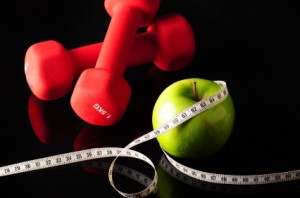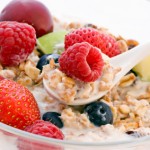 The Perils of Quick Weight Loss
The Perils of Quick Weight Loss
Quick weight loss can be dangerous and does not lead to permanent weight loss. To achieve weight loss, think of burning more calories than you consume, rather than consuming less calories than you burn.
Most weight loss programs focus on limiting the amount of calories consumed. It’s difficult to lose the necessary weight just focusing on the intake of calories. The body needs a certain amount of calories, and other vital nutrients to function optimally. How many calories we need is dependent on our metabolism, or the rate at which we burn calories. If calories are restricted too much, the body honkers down into a survival mode and will slow its metabolism, making further weight loss and future weight loss more difficult.
Quick weight loss is usually the result of water loss. This only leads to fatigue and can lead to dehydration, which is unhealthy and potentially dangerous.
Though, limiting calories is many times necessary, a better approach to weight loss is to improve your metabolism so that you burn more calories, even at rest.
Jump Starting Metabolism
Our metabolism is greatly influenced by our hormones. We typically start to gain weight around the same time our hormones naturally begin to decline, which is around age 30. Thyroid hormone is the main hormonal regulator of our metabolism. Low thyroid levels can be associated with fatigue, weight gain, elevated cholesterol, depression, muscle aches, and many other symptoms.
DHEA, growth hormone, and our sex hormones also play a role in maintaining metabolism. These hormones maintain and help to build muscle in response to strength training exercises. Muscle burns a lot more calories than fat.
Have your hormone levels measured if you struggle with your weight.
 Another way to jump start your metabolism is to eat, and specifically eat breakfast. Overnight the body’s been fasting. If it doesn’t get fed in the morning the body will perceive that it is being starved and will slow its metabolism. It also takes calories to digest food and for some foods the body spends more calories to digest them than the calories the food provides. These are called thermogenic foods.
Another way to jump start your metabolism is to eat, and specifically eat breakfast. Overnight the body’s been fasting. If it doesn’t get fed in the morning the body will perceive that it is being starved and will slow its metabolism. It also takes calories to digest food and for some foods the body spends more calories to digest them than the calories the food provides. These are called thermogenic foods.
Exercise, exercise, and exercise. On top of aerobic exercises incorporate strength training and high intensity interval training into your routine. Strength training and high intensity training affect metabolism to a greater degree and for a longer period of time than do aerobic exercises (see “Exercise for Weight Loss”).
Drink plenty of fluid. This improves circulation and the transport of oxygen and nutrients to the body so that it can operate with efficiency. It also facilitates the removal of toxin and waste products.
Tap Your Fat for Energy
Eating low glycemic foods will make it easier for your body to burn fat calories. High glycemic foods lead to a rapid rise in blood sugar and insulin levels. Insulin is necessary to transport glucose into the cells, but it it’s too high it locks the door on the body’s ability to tap into its fat stores for energy. Plus, any extra sugar that is not burned will get converted into fat. Avoid foods that contain high fructose corn syrup. The obesity problem in America directly parallels the increased consumption of high fructose corn syrup, which leads to glucose spikes and stimulates the body to make fats. More information on the glycemic index can at glycemicindex.com.
Follow the above recommendations. They may not to lead to quick weight loss, but weight will come off soon and it will be easier to keep it off.
See related articles “Natural Metabolism Boosters” and “How to Lose Weight“.
